Leading stressors at school
Since the pandemic the focus is far more on mental health and stress management in education. However, the focus has been there all along – it’s just been stepped up.
MHFA England who offer expert guidance and training to support mental health say that one in ten young people experience a mental health issue at any one time. Leading stressors include:
– Change of schools
– Friendship and family issues
– Transitioning to become a teenager
– Exams and catching up after covid
– Illness or bereavement
– Fear of the unknown
– Bullying online or in person
A big factor of school life now is the general management and support of young people in those kind of situations – or any others that cause anxiety. It’s the every day rather than exceptional circumstances. Teachers too.
Pastoral Care at boarding school
Boarding schools are better placed to manage wellbeing of each pupil, through virtue of the fact that the children live on site as well as having smaller class sizes. They are able to provide pastoral care to their pupils 24/7 as required.
Each school has massive support networks including a house parent, tutor, teachers, matron, chaplain, peer counsellors, house and school prefects as well as in-house Wellbeing Centres and Counselling Services. Pastoral leaders can keep a closer eye on each child whilst helping each individual keep a healthy balance between the academic focus and downtime routine. Coping mechanisms are taught and the support system is always there.
Maintaining a healthy balance of wellbeing isn’t just relevant to the pupils. It’s vital for the teachers too. To look after their own mental health as well as set an example to their pupils. Thorough training is given to teachers and other staff who interact with pupils to provide the right skills and knowledge, as well as having access to extensive mental health resources. To cultivate a mentally healthy school and to keep wellbeing always in the forefront of everyones minds.
To give you an idea of the type of training they receive, here’s what Creative Education’s courses , Creative Education being one of the UK’s largest independent provider of teacher CPD courses, focuses on. They cover areas such as leading mental health effectively across their setting, identifying the need and assessing the impact of interventions, promoting mental health throughout the curriculum, enabling pupils voices to be heard and therefore influencing the direction of provision, along with how best to work closely with parents and carers.
Examples of wellbeing management at boarding school
Each boarding school will follow the highest standards in stress and wellbeing management. There are a whole plethora of ideas and initiatives out there. Here are just a few examples that we came across in researching this piece.
Felsted School, Essex
At Felsted the dialogue about mental health taught through PSHE (Personal, Social, Health and Economic) lessons, peer counselling and mindfulness lessons. They run activities associated with wellbeing, such as mindfulness, meditation, yoga and pilates. Along with the support network they provide, the school is proud to have a Wellbeing Centre for anyone to use when they need to seek respite and access resources to support their mental health. It’s a lovely, calming, comfortable space with a focus on a sensory experience.
Forest School, London
Forest School in London was awarded Gold in the School Mental Health Award delivered by the Carnegie Centre of Excellence for Mental Health in Schools in 2021. At Forest, as they say “wellbeing is embedded across the whole curriculum.” There’s a real community feel there and ample opportunity for pupils to regularly collaborate with their peers and other year groups, as well as the teachers via the school’s co-curricular and extra curricular offerings. The school has also offered on-site counselling service in partnership with Place2Be, a children’s mental health charity, along with self-referral provision via Place2Talk.
Leighton Park, Berkshire
Leighton Park has won both the national Independent Schools Association Award (ISA) for Excellence in Pupil Personal Development 2022 and Wellbeing Award for Schools accredited by the National Children’s Bureau at the beginning of 2023.
The school’s educational approach is based on a values-led approach and has been applauded for meeting the needs of both pupils and staff in order for everyone to feel like they can thrive. There’s a real sense of belonging, feeling safe and being ready to learn.
Rudolf Eliott Lockhart, CEO of ISA says: “Leighton Park School inspires the changemakers of tomorrow with their values-based education. This is an ethos that runs throughout the whole school. Students are encouraged to understand different worldviews and reflect upon this. Their commitment to the personal development of students is outstanding. It is deeply rooted within both the curriculum and extra-curricular activities.”
Oundle School, Northamptonshire
Where pupils may need further help at Oundle School for emotional wellbeing, one-to-one, entirely confidential sessions are available in the private setting of the School’s Clayton Rooms. These are run by an experienced wellbeing team led by their Mental Health Lead and also include their dog Yoshi, a trained welfare dog. Oundle also make some pupils Mental Health Reps. Empowering the pupils to be actively involved and and prioritising their well-being
Wellbeing apps for schools
There are a whole host of wellbeing apps and digital platforms that boarding schools utilise too. For example, one with a holistic approach is wellbeing and personal development app youhq. youHQ supports independents along with state schools in the UK, UAE, South Korea, Thailand, and Qatar, including Leighton Park mentioned above.
Created by parents, psychologists and learning specialists, youHQ was piloted in February 2020, just before the first UK COVID lockdown. The app quickly gained momentum as a lifeline for schools to monitor wellbeing and stay connected with their pupils who were learning remotely. It features include mood and wellbeing tracking using child friendly emojis, values-based goals settings, safeguarding and focus groups, ongoing resources for both pupils and teachers – as well as an urgent support area.
In the three years following that first lockdown, youHQ has evolved to match pupils and teachers needs, creating increasingly effective wellbeing processes and revolutionising the way schools care for their communities. Identifying when intervention is needed and providing the extra support to those who need it.
There are other apps that specialise more. There’s Tootoot for bullying. Tootoot provides 24-hour support to young people who are victims of bullying and online abuse. It gives them that anonymity that they might need. Another is MindShift which helps the user to identify and plan for situations that cause anxiety. e.g. perfectionism, worry, test and performance anxiety, social fears and panic.
Wellbeing is now always part of the conversation
One thing is clear. Wellbeing and mental health is now always part of the conversation at boarding schools and any child entering this world will not just be looked after but be given the tools to look after themselves. That anxiety is just part of life and that it’s ok to ask for help.

